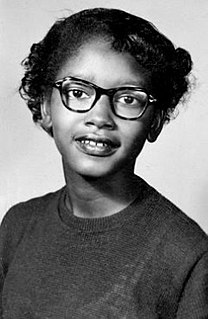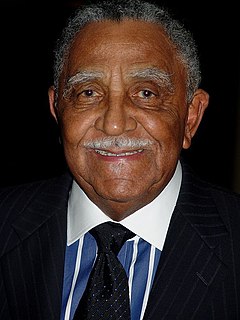A Quote by Claudette Colvin
The Montgomery Bus Boycott began in December 1955, and by 1956 NAACP leaders came to me and asked me to be part of a lawsuit they wanted to file on my behalf and that of three other women, to challenge segregation on public buses.
Related Quotes
The majority of the Negroes who took part in the year-long boycott of Montgomery's buses were poor and untutored; but they understood the essence of the Montgomery movement; one elderly woman summed it up for the rest. When asked after several weeks of walking whether she was tired, she answered: "My feet is tired, but my soul is at rest.
I would often take this bus and go to a nearby village where I had hordes of animal friends. I was hardly around four or five years old then. The conductor was so used to seeing me hop on to the bus and get down at the same place, that he never asked any questions. The strangest part is, he never asked for a ticket either!
I once had a young musician come to me and say that he wanted to be a professional musician. I asked him to write his list. When he came back to me, the three things in his life he most wanted were: to be paid for his music; to travel around the world; to meet new people. We came to the decision, after thinking really creatively, that if he got a job on a cruise ship, he would fulfill those goals.
There's a black lawyer in Galveston, Texas, who was the unpaid NAACP general counsel in Texas. He had a great record in housing discrimination, labor discrimination. He decided to take as a client a member of the Ku Klux Klan because the state wanted to get the membership lists of the Klan to find out if they could get something on the Klan. And he said, `I got to take you. I despise you. But we, the NAACP, won that case; NAACP vs. Alabama in the 1950s. Nobody has the right to get your membership lists.' He was fired from the NAACP. To me, he's a hero.
I asked for strength,
and God gave me difficulties to make me strong.
I asked for wisdom,
and God gave me problems to learn to solve.
I asked for prosperity,
and God gave me a brain and brawn to work.
I asked for courage,
and God gave me dangers to overcome.
I asked for love,
and God gave me people to help.
I asked for favors,
and God gave me opportunities.
I received nothing I wanted.
I received everything I needed.






































